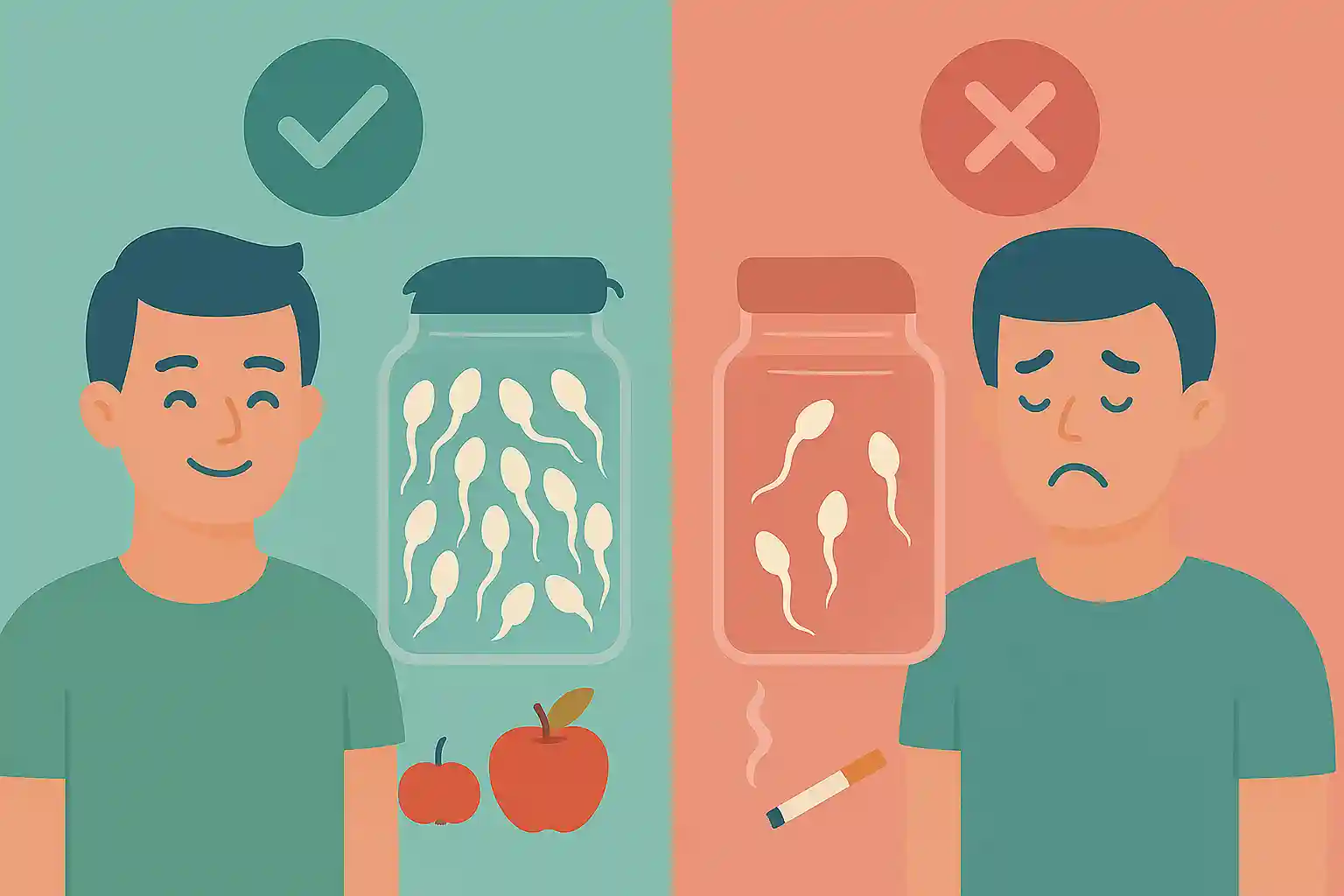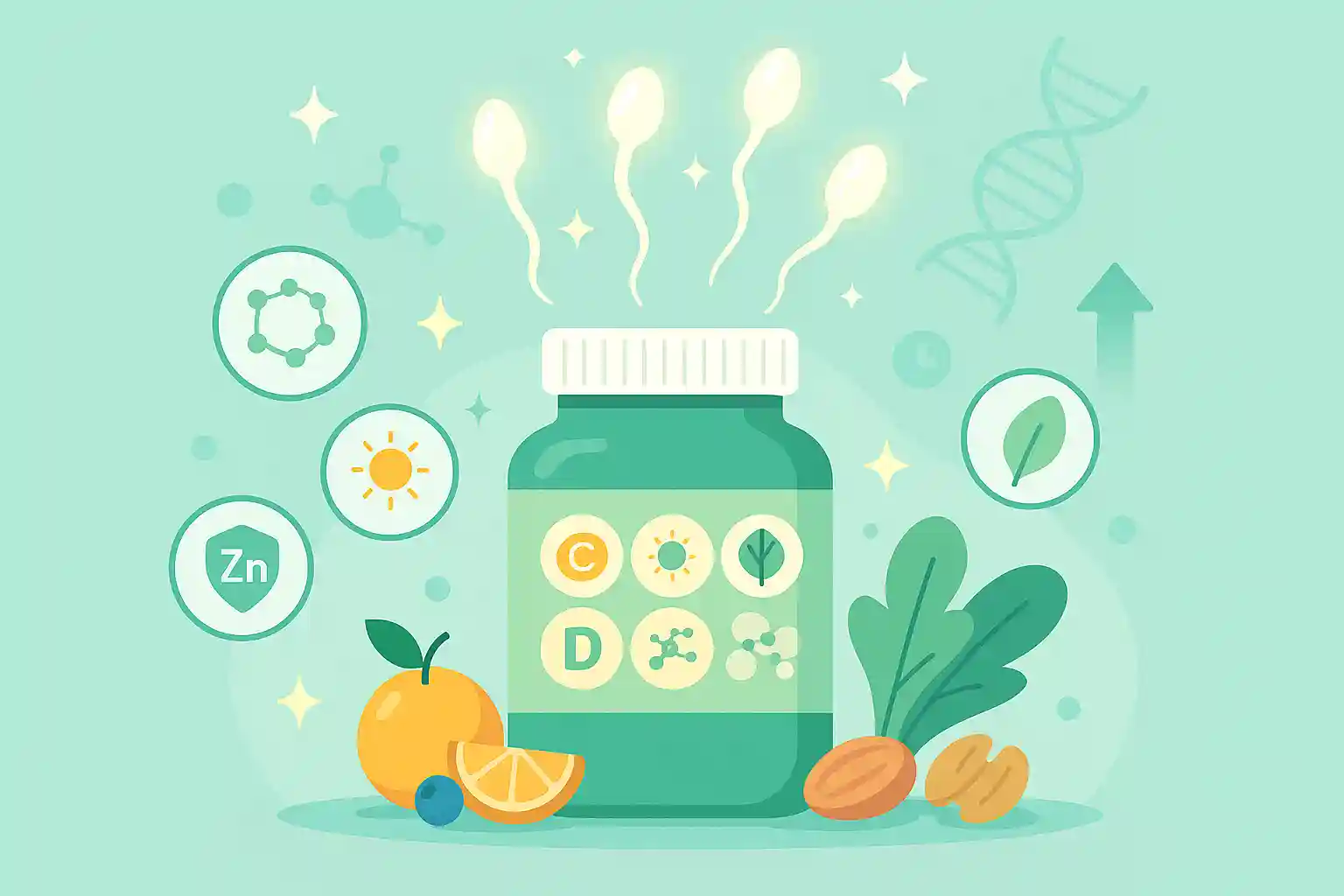Low sperm count, medically known as oligospermia, affects approximately 15% of men trying to conceive. While it can feel overwhelming to receive this diagnosis, understanding the underlying causes is the first step toward effective treatment. The good news? Many causes of low sperm count are treatable or manageable through lifestyle changes, medical interventions, or both.
Understanding Low Sperm Count
A normal sperm count ranges from 15 million to over 200 million sperm per milliliter of semen. Low sperm count is diagnosed when concentration falls below 15 million sperm per milliliter. However, it's important to note that sperm count is just one factor in male fertility—sperm motility, morphology, and overall semen volume also play crucial roles.
Medical Causes of Low Sperm Count
Several medical conditions can directly impact sperm production:
- Varicocele: Enlarged veins in the scrotum that increase testicular temperature
- Infections: STIs, prostatitis, or epididymitis can affect sperm production
- Hormonal imbalances: Low testosterone, thyroid disorders, or pituitary problems
- Undescended testicles: Developmental condition affecting sperm production
- Genetic defects: Chromosomal abnormalities like Klinefelter syndrome
- Anti-sperm antibodies: Immune system mistakenly attacks sperm
- Tumors: Cancers affecting reproductive organs or hormone-producing glands
Lifestyle and Environmental Factors
Many lifestyle choices and environmental exposures can significantly impact sperm count:
Heat Exposure:
- Frequent hot baths, saunas, or hot tubs
- Tight-fitting underwear or clothing
- Prolonged sitting (desk jobs, long drives)
- Laptop use directly on lap
Substance Use:
- Smoking tobacco (reduces sperm count by up to 23%)
- Excessive alcohol consumption
- Marijuana and other recreational drugs
- Anabolic steroids and performance enhancers
Occupational and Environmental Hazards:
- Heavy metals (lead, mercury)
- Industrial chemicals and solvents
- Pesticides and herbicides
- Radiation exposure
- High-stress occupations
Nutritional and Dietary Factors
Poor nutrition can significantly impact sperm production and quality:
- Obesity: Excess weight affects hormone levels and sperm production
- Zinc deficiency: Essential mineral for sperm development
- Low antioxidant intake: Increases oxidative stress on sperm
- Excessive processed foods: High in trans fats and preservatives
- Inadequate folate and vitamin B12: Important for DNA synthesis
- High soy consumption: Contains phytoestrogens that may affect hormones
Medications That Can Affect Sperm Count
Certain medications may temporarily or permanently reduce sperm production:
- Testosterone replacement therapy
- Some antibiotics (sulfasalazine, nitrofurantoin)
- Antidepressants (selective serotonin reuptake inhibitors)
- Anti-seizure medications
- Chemotherapy drugs
- Some blood pressure medications
- Anabolic steroids and supplements
Natural Ways to Boost Sperm Count
Many lifestyle modifications can help improve sperm count naturally:
Dietary Improvements:
- Increase zinc-rich foods (oysters, beef, pumpkin seeds)
- Add antioxidant-rich fruits and vegetables
- Include omega-3 fatty acids (fish, walnuts, flaxseeds)
- Maintain adequate vitamin D levels
- Limit processed foods and sugar
Lifestyle Changes:
- Maintain healthy weight through diet and exercise
- Quit smoking and limit alcohol consumption
- Manage stress through meditation or counseling
- Get 7-8 hours of quality sleep
- Wear loose-fitting underwear
- Limit heat exposure to testicles
Supplements (consult healthcare provider first):
- Coenzyme Q10
- Vitamin C and E
- Zinc and selenium
- Folate and vitamin B12
- D-aspartic acid
Medical Treatment Options
When lifestyle changes aren't sufficient, medical interventions may be necessary:
- Hormone replacement therapy for hormonal imbalances
- Antibiotics for infections affecting fertility
- Surgery for varicocele repair
- Medications to improve sperm production
- Assisted reproductive technologies (IUI, IVF)
- Treatment of underlying medical conditions
When to See a Fertility Specialist
Consider professional help if:
- You've been trying to conceive for 12 months (6 months if partner is over 35)
- You have signs of low testosterone (low libido, fatigue, mood changes)
- You have a history of testicular injury or infection
- Previous semen analysis showed abnormal results
- You have a family history of fertility problems
- You've been exposed to chemotherapy or radiation
The Road to Recovery
Improving sperm count takes time—sperm production cycles last about 74 days, so changes may not be apparent for 2-3 months. Consistency with lifestyle modifications is key, and many men see significant improvements with dedicated effort.
Remember that low sperm count doesn't mean you can't father children. Many couples with male fertility challenges successfully conceive with appropriate treatment and lifestyle changes. Working closely with healthcare providers can help identify the specific causes affecting you and develop a personalized treatment plan.
Taking Control of Your Fertility
While receiving a low sperm count diagnosis can be concerning, it's important to remember that this condition is often treatable. By understanding the various causes and taking proactive steps—whether through lifestyle modifications, medical treatment, or both—many men can significantly improve their sperm count and overall fertility potential. The key is early identification, consistent effort, and working with qualified healthcare professionals to address your specific situation.


